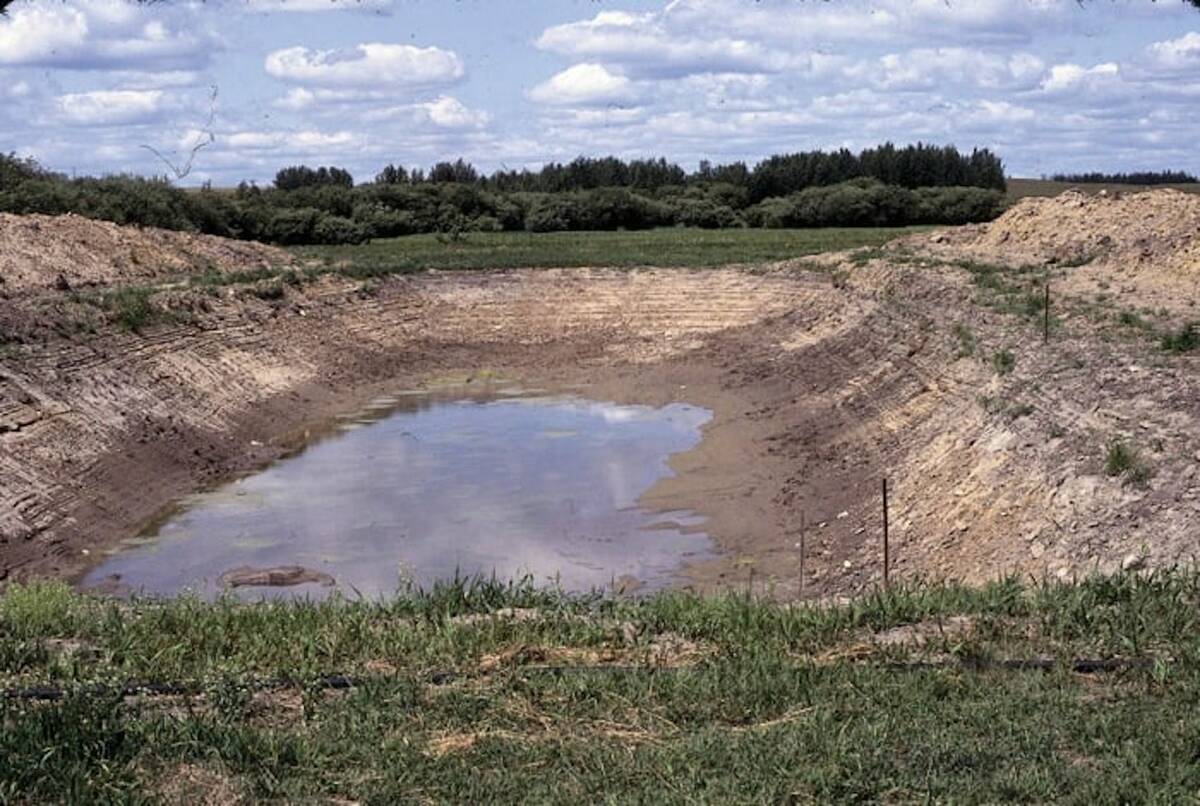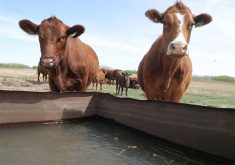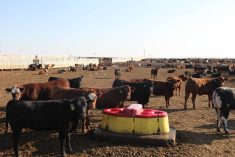BANFF, Alta. Ñ Canada needs to pick up the pace when it comes to adding value to agricultural commodities, says the past chair of Grain Growers of Canada.
“Canada is a laggard in biodiesel, bioproducts, nutritional opportunities,” Ken Bee told the Alberta Barley Commission annual meeting in Banff last month.
“It is critical for the Grain Growers of Canada to hold the government accountable for its political goals.”
The group consists of grain and oilseed grower associations across Canada, representing 65 million acres of cultivation.
Read Also

Dry summer conditions can lead to poor water quality for livestock
Drought conditions in the Prairies has led to an decrease in water quality, and producers are being advised to closely monitor water quality for their animals.
Bee said the federal agriculture policy framework claims value adding is a priority to achieve prosperity, yet it seems like many government policies go against that concept.
“If agriculture is so important, why is agriculture so often low priority with government?” he said.
To force action, he said groups such as his need to be more persistent lobbyists, especially among bureau
news
crats who formulate farm policy.
“Quebec members know how to put pressure on their MPs and that pressure pays off with some of the programs they have in their province,” he said.
And while Canada fails to move, the United States has been active building pasta, biodiesel and ethanol plants. Three new barley malt plants have been built there, which Bee said should have been located in Alberta or Saskatchewan.
Bioproducts should be derived from Canadian grown products rather than buying cheaper, dumped products from elsewhere or importing finished products.
Bee said part of the blame rests with the Canadian Wheat Board’s regulatory structure, which discourages value adding in the West.
Too often malt barley should have gone for higher value to the brewing industry but moved into the feed market because of a lack of price signals, he said.
Still, Bee said the grain growers group and the wheat board should make the effort to lobby government on issues of mutual concern.
“Grain Growers of Canada should be willing to sit down with CWB whenever we have some common ground.”
However, he said that’s not likely to happen until there is some level of agreement on marketing choice.
Wheat board director Art Macklin said there is room for co-operation on issues such as ending damaging export subsidies.
“There has been discussion at the CWB board of directors about participating with the Grain Growers of Canada,” Macklin said.
- The Japanese market
is not interested in Canada’s weather-damaged grain.

















